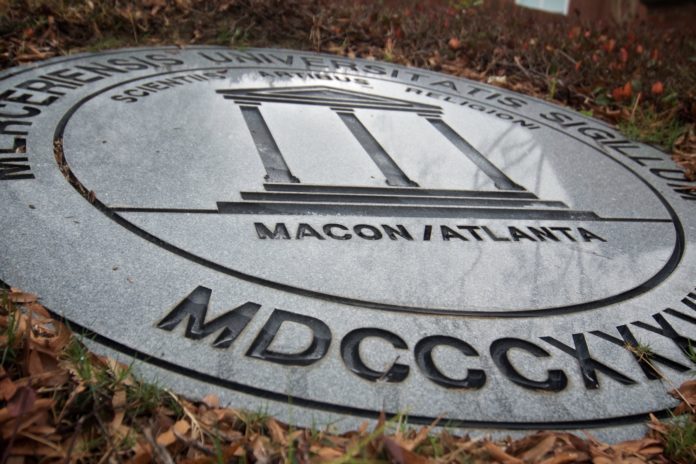(The following article was published Tuesday, April 2, 2007 in the Macon Telegraph.)
By Jennifer Burk
jburk@macontel.com
Liz Glawson wanted to attend Mercer University because of the school’s prestige, but she didn’t know if she could afford it.
“When I decided I wanted to go back and finish my college career, I faced the decision of having to go back to my dad and ask him to help pay for it,” she said.
Had he said no, she would have had to decide whether to get a loan to attend Mercer.
“Thankfully, he said yes,” said Glawson, who is now a junior there.
The experience led Glawson, a sociology major, to conduct a yearlong research project about how socioeconomic factors influence a student’s college choice.
Eight students, including Glawson, shared findings from their various research projects at Mercer’s third annual social research conference Monday.
The students conducted surveys and interviews in the Mercer and Macon communities on topics including young women’s body image, the satisfaction of residents of Tattnall Place and materialism among college students, as well as other topics.
In Glawson’s research, she found that attending a private or public high school, the amount of available financial aid and household income had some effect on the college a student attended.
BODY IMAGE
Senior Jenny Carter remembers being surprised at the recent news that women were kicked out of the Delta Zeta chapter at DePauw University for allegedly not having the slim, attractive appearance typical of sorority women.
“What is it that makes women want to look a certain way?” Carter wondered.
Carter’s research focused on young women and their body image.
Women focus more on their body image than men, and a woman’s perception of her body can affect the way she interacts with others, Carter said.
During her research, Carter found that body-image awareness is more important in the Greek community, with 58 percent of sorority members and 30 percent of non-sorority members saying they pay a high level of attention to body image.
Carter also found that the way a mother views her own body influences the way a daughter views hers.
“A mother’s encouragement of a healthy body image is crucial in the development of a healthy body image,” Carter said.
TATTNALL PLACE
Mercer senior Rebecca Kiel lives just a few blocks from Tattnall Place, a mixed-income community run by the Macon Housing Authority.
Her location, coupled with a lifelong interest in the effects of low-income housing on its residents, led her into the community to interview residents about their satisfaction in living there.
Tattnall Place replaced Oglethorpe Homes, which offered low-income housing, and at the same time took on a new look, with wide sidewalks and neat streetscapes, Kiel said.
Aesthetics play an important role in the satisfaction of the residents who live there, she said, mentioning an interview with one resident: “It has increased his expectations. It has increased his desire for his own home.”
Open spaces, which allow the disabled and children to socialize and engage in physical activity, lend to residents’ satisfaction, she said.
Other factors that increase satisfaction include nearby job opportunities, public services and public recreational facilities, Kiel found.
MATERIALISM
Today’s college students seem more concerned with getting rich than anything else, senior Regina Smalls said.
More than half the Mercer students she surveyed said they are in college to find a high paying career or a mate who will, she said.
So what causes a student to become materialistic?
Smalls found the most influential factor to be parental influence. If a parent is materialistic, chances are, the student is, too, Smalls said.
Religion also plays a factor, she said. The more religious someone is, the less materialistic they tend to be, she said.
In addition, those with high incomes tend to be more materialistic.
“People who have more money feel like they need more money to be satisfied,” Smalls said.
The problem with materialism is it may widen the gap between the rich and the poor, Smalls said.
“I worry that the more materialistic people get, the rich will just get richer and the poor will get left behind,” she said.
To contact writer Jennifer Burk, call 744-4345.










